A chance discovery in June 2004 of human skeletal remains in Sanauli led to the finding of a vast Late Harappan cemetery just north of Delhi, India. Dating to between 1900 and 1600 b.c.e., this was a time when local Late Harappan communities were developing new settlement patterns and trade networks. Excavations in 2005 and 2006 by Archaeological Survey of India uncovered the remains of numerous extended burials and ritual offerings, many of which were overlapping, and partly destroying earlier burials. This evidence shows that the cemetery was used over a long period of time and that there were some changes in the types of pottery and other objects buried with the dead.

What and Who
Several categories or types of burials have been identified at Sanauli. Among them are 16 primary burials that have full skeletons, 46 primary burials that have been disturbed, and 22 burials accompanied by pottery remains. Other finds include features that cannot be identified definitely as burials. The orientation of the burials is generally from northwest to southeast, with the head to the north. There are, however, some variations in the precise angle of the burial. (See chart at right.)
Analysis of 42 skeletal remains determined that 10 were males (with identification of two of these still doubtful); eight were females, and six were non-adults (children or youth). Interestingly, the average height for males was 66 inches; for females, 68 inches.
How They Did It
This story is from the February 2017 edition of Dig Into History Magazine for Kids and Teens.
Start your 7-day Magzter GOLD free trial to access thousands of curated premium stories, and 9,000+ magazines and newspapers.
Already a subscriber ? Sign In
This story is from the February 2017 edition of Dig Into History Magazine for Kids and Teens.
Start your 7-day Magzter GOLD free trial to access thousands of curated premium stories, and 9,000+ magazines and newspapers.
Already a subscriber? Sign In

Worshiping Heaven
For almost 500 years, emperors of the Ming and Qing dynasties offered sacrifices and prayers at the Temple of Heaven in Beijing.
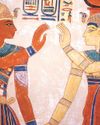
Peace Reigns
The news spread throughout Egypt—a new pharaoh, Ramses III, now sat on the throne.
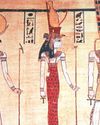
Problems To The East
Ramses III, the second king of Egypt’s 20th Dynasty, is viewed as Egypt’s last truly great pharaoh.
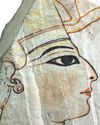
The Successors
Following the death of Ramses III, eight pharaohs, all named Ramses, ruled Egypt.
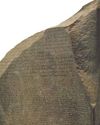
Stone Code
Hundreds of ships, led by the French general Napoleon Bonaparte, sailed from France in May 1798 on a secret mission.

Up & Away!
Eclipse observers often face unexpected difficulties, sometimes on their way to their chosen sites and sometimes at a site itself.

Edison's Eclipse Adventure
Thomas Edison (1847–1931) is the best-known inventor in American history.
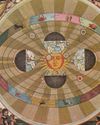
Digging Up Copernicus
The scientist “who made the Earth a planet” is how the Harvard-Smithsonian astronomer Owen Gingerich refers to Nicolaus Copernicus (1473–1543). Copernicus’ path breaking book, On the Revolutions of the Heavenly Spheres,challenged the centuries-old belief that the Earth stood stationary at the center of the cosmos.
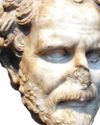
Demosthenes & Cicero
Even today, more than 2,000 years after they lived, Demosthenes and Cicero are still considered two of history’s most outstanding orators.
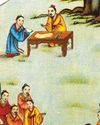
Confucius & Socrates
Some teachers are so inspirational that their influence lives on long after they die.